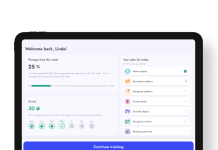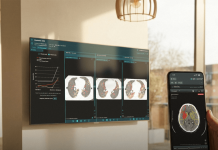Digital primary care startup K Health picked up $59 million from its investors along with one of the largest academic medical centers in California, Cedars-Sinai, to build out its AI-powered medical services.
K Health aims to reinvent primary care by providing patients remote access to healthcare services through their smartphones. Launched in 2016 and rolled out into the U.S. market in 2018, K Health developed a chat function that uses artificial intelligence to suggest potential diagnoses for consumers who enter symptoms and also takes into account the user’s medical history, age and gender. Its platform sifts through the data of millions of patients and suggests a medical condition and will connect patients with a doctor or nurse, if needed.
Ten million people have interacted with K Health’s AI, and 3.1 million patients in 48 states have completed a chat with a doctor or nurse visit via K Health, CEO and co-founder Allon Bloch told Forbes. The company offers primary care, urgent care and some pediatric services as well as chronic disease treatment including weight loss management.
Along with investing in K Health, Cedars-Sinai also inked a partnership with the digital health company to use its technology for virtual urgent and primary care services, Forbes reported in an exclusive interview about the funding round and the partnership.
Existing investors Valor Equity Partners, Mangrove Capital Partners and Pico Venture Partners also backed the latest funding round. K Health has raised $330 million to date, according to Crunchbase, and Forbes pegs the startup’s valuation at $800 million. K Health had a reported valuation of $1.5 billion in January 2021, at the height of the digital health boom, when it closed a $132 million series E round.
The company, named one of Fierce Healthcare’s Fierce 15 of 2023, is focused on building out hospital and health system partnerships to serve as a “digital practice partner,” executives told Forbes.
K Health and Cedars-Sinai are developing an app that connects to the startup’s AI and leads to a chat with a health-system-credentialed doctor or nurse. The app, which is expected to go live by the end of this year, will also be linked to the system’s electronic medical record system from Epic. Doctors will also be able to make referrals within the brick-and-mortar Cedars-Sinai network for any needed specialty care, Forbes reported.
Three years ago, K Health inked a collaboration with Mayo Clinic through the Mayo Clinic Platform, the hospital’s digital health and artificial intelligence project. The two organizations said they would focus on developing clinical decision support tools for Mayo Clinic patients and doctors and virtual care models to help patients receive autonomous care.
A year later, K Health launched a joint venture with Elevance Health (previously Anthem) and Blackstone Growth called Hydrogen Health to develop virtual care services for self-insured employers and insurers.
K Health built its AI models based on data sets from Israeli health insurance company Maccabi. Through a licensing agreement, Maccabi provided anonymized health data of 2.1 million people over 20 years, including 400 million medical charts, 2 million hospitalizations, 500 million prescriptions and more than a billion lab results, Forbes reported.
K Health also licensed another large anonymized data set from the Mayo Clinic that included anonymized medical charts from 5.3 million patients,1.2 million lab tests and partial data tied to another 4.7 million patients.
The company was able to use that data set to develop predictive algorithms to help Mayo Clinic doctors personalize hypertension treatments.
In addition to hypertension, K Health clinicians are now able to remotely manage conditions including Type 2 diabetes, obesity and high cholesterol as well as conduct wellness visits, help patients stay up-to-date on any health screenings and prescribe FDA-approved medication, executives told Fierce Healthcare earlier this year.
Bloch told Forbes that none of the data people have entered into the app or website have been shared with third-party tracking services or social media companies.
Along with scaling up its AI technology in hospitals, K Health also is focused on working with academic researchers to evaluate the efficacy of its AI-based medical services. The company’s AI has undergone a scientific review of its AI co-authored by Dr. Jon Ebbert, M.D., from the Mayo Clinic and Dan Zelter, Ph.D., an economist from Tel Aviv University who specializes in healthcare, executives told the publication Calcalist.
A retrospective study of K Health patient visits found that the human doctors and nurses agreed with one of the company’s AI-recommended diagnoses 84.2% of the time and with the top-ranked AI diagnosis 60.9% of the time, Forbes reported.
While K Health continues to chart strong growth, other digital primary care startups have faltered in the current market. Beleaguered digital health company Babylon Health went public less than two years ago, but its shares have been on a steep slide. The company now plans to go private again as it continues to be saddled with mounting losses and will combine with digital therapeutics company MindMaze.




